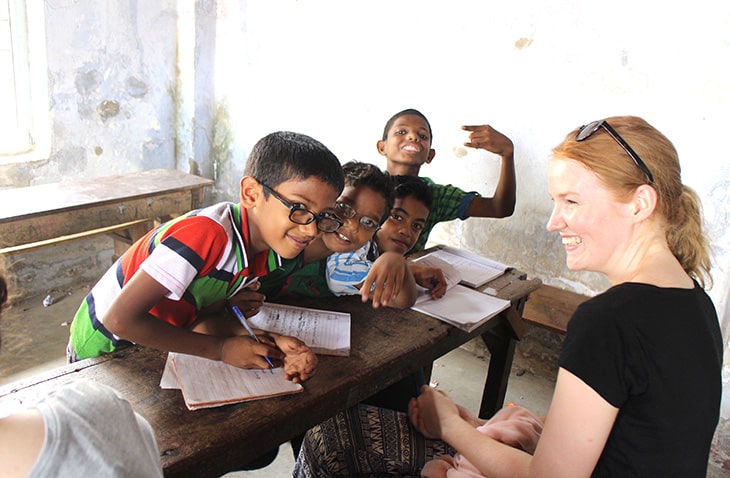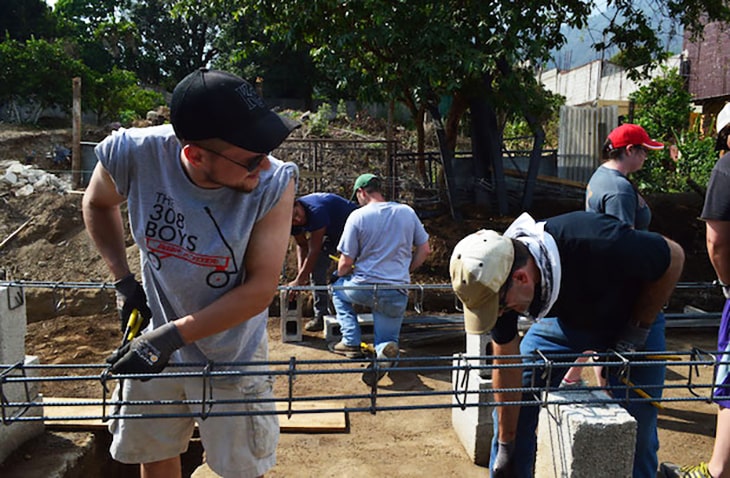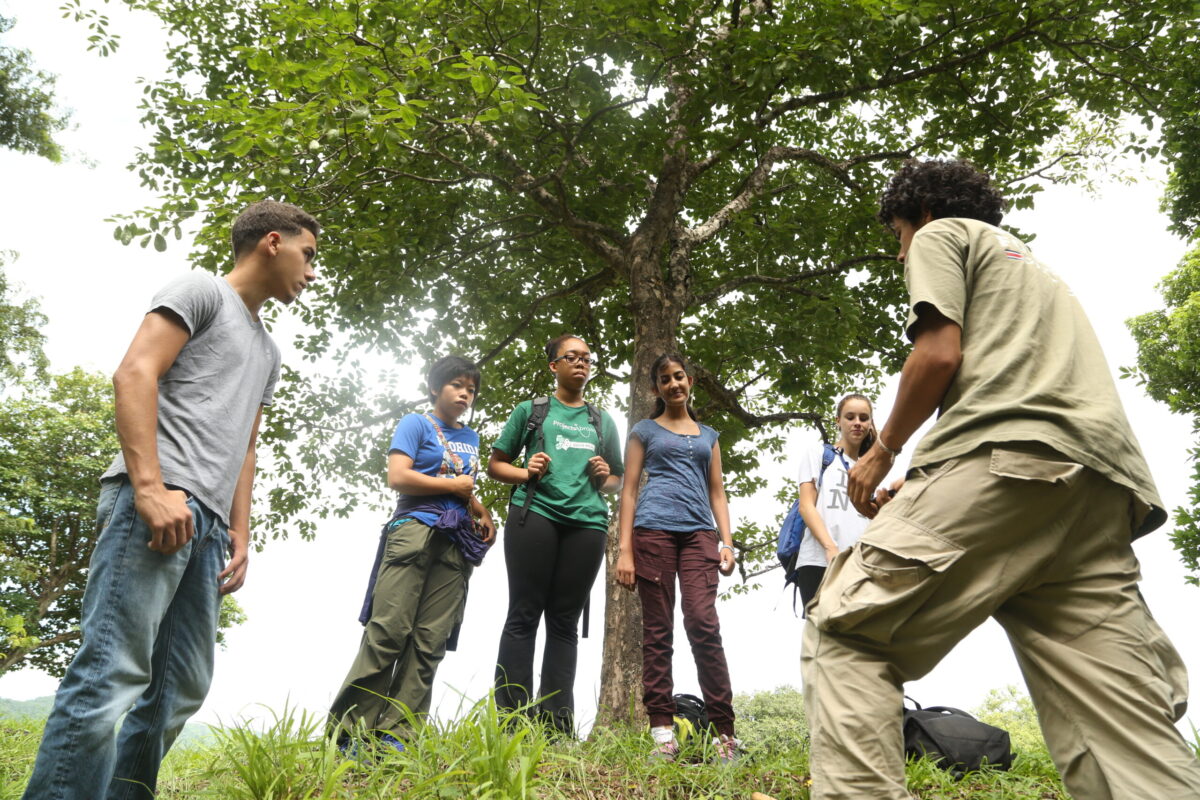Updated for 2023-2024
Need time before taking your next step after high school?
Then consider a gap year.
An increasingly popular route for students and young adults, 35% of high school students have thought about taking a gap year after graduation, according to a TD Ameritrade survey. And most experts expect the gap year to only become more common in the coming years (it’s gone mainstream!).
Now, if you go on a gap year adventure, you may worry that others, like your family and potential
university or employer, will feel you’re slacking off. Stop that line of thought!
Gap year programs offer the opportunity for self-improvement through travel, study, research, and work. You can even enhance your resume if you spend your time wisely. That’s why many education experts, including guidance counselors, encourage taking a gap year. And studies prove that students who take a gap year achieve higher GPAs and graduate earlier.
So, does a gap year sound right for you?
If so, look over this guide. You’ll learn all about gap year programs and how to determine which gap year program suits you best.
What Is a Gap Year?

A gap year is typically (but not always) the year after high school and before college. During a gap year, students take time to experience a different community and culture, gain work experience, study new skills, and/or reflect on their lives and what’s ahead.
Often, students choose international gap year programs abroad in a foreign country. Their gap year experience may involve volunteer community work and offers a number of learning opportunities. Experiencing a different culture and getting to know the world often provides an academic boost for participants. Time taken to travel and immerse oneself in the culture helps them to become global citizens.
Ultimately, what you do during your gap year depends on your personal goals, budget, and preferences. For instance, if you want to take a year off before dental school, you may consider a dental volunteer abroad program. Or, if you wish to explore the history and culture of Europe but must remain within a set budget, arrange a travel itinerary that includes volunteering, teaching, or interning (as that can offset expenses).
The point is this: Make the most of your gap year! Do what will benefit you now and over the long run.
Why Should You Take a Gap Year?

There are a number of reasons you should choose to take a gap year. If you’ve always wanted to travel abroad and experience international cultures, while learning and offering help in a local community, a gap year is a great opportunity.
A gap year will help you develop a greater understanding of the world and develop empathy for fellow human beings. It may also springboard you into wonderful academic opportunities. Many universities love to see students who have a breadth of experience and who are familiar with many different cultures. Here are some other reasons you may consider a gap year:
- A gap year gives you a break after high school to recalibrate for college
- A gap year helps you clarify your goals and better understand your passions
- A gap year enables you to truly make a difference in the lives of others who may be less fortunate than you
- A gap year helps you mature and gain experience in learning new things and overcoming challenges
- A gap year may help you expand your knowledge in a chosen field
Avis E. Hinkson, an expert in higher education, describes the value of a gap year well. “A gap year is a wonderful opportunity for young people to take a year to follow a passion before attending college,” she attests. “Some will have internships, some will travel, some will fulfill religious responsibilities, and some find paid work. All-in-all, they will grow and mature.”

How Do You Pay for a Gap Year?
Gap years can be expensive, but you don’t have to foot the entire bill alone. There are a number of scholarships and grants available for volunteering abroad and gap years, which you can check out here. You can also try out fundraising for your trip!
How Do You Prepare for a Gap Year?
While not always necessary, if you’re going to a foreign country, it doesn’t hurt to learn the native language beforehand. Being immersed in another culture certainly takes some getting used to, and if you are able to communicate, your experience may be less of a culture shock, and more enriching and enjoyable.
To prepare for a gap year, be sure you are mentally ready and that you are comfortable being far away from family and loved ones. Know how to live on your own.

How Do You Pick the Right Gap Year Program for Your Needs?
Finding the right gap year program for your specific needs may take some reflection and time. Be sure you get clear on what you want your gap year experience to provide before you jump into a decision. Here are some things to consider when deciding which gap year program is right for you.
1. Determine Your Purpose
Why are you taking a gap year? What do you hope to accomplish? Is it for academic purposes? Is it for fun? Is it to experience another culture? Or are you looking to gain experience in a specific field of study? Having your purpose clear in your mind will help you as you decide on a program.
2. Decide How Long You Want Your Program to Be
As the name implies, a gap year program generally lasts a year. That said, some programs are shorter or longer than others. If you determine how long you want to be away, you’ll have an easier time narrowing down your choices.
3. Keep Your Budget in Mind
How much can you afford to pay for your gap year? Without a doubt, some gap year programs are more costly than others. Keep your budget in mind before getting too far into your gap year planning. If you live in the United States, a gap year in South or Central America may be more affordable than one in England or Spain.
You’ll want to factor in the cost of plane tickets, accommodation, program fees, food, and souvenirs. Things can really add up, so be sure to overestimate when you’re determining how much a specific gap year program will cost.
4. Think About the Program’s Focus
Each gap year program has its own focus. And some programs are more hands-on than others. While some programs will simply get you placed with an experience, others might be there facilitating the experience and helping you every step of the way. Different programs are better for different needs. Decide what you’d prefer.
If you want more autonomy, find a program that is more hands-off. Also, select a program that really narrows in on whatever it is you want to get out of it. For instance, if you are studying wildlife, a gap year in the Amazon rainforest may be superior to one in a large European city.

5. Understand Accommodation
Where will you be staying? What will the living situation be like? Will it have the comforts you desire? Will you have a host family? Will you be able to bring a roommate? Understand that if you visit a country that is less developed than your own, the living conditions may be different. Make sure you understand this going in. If you visit Africa, for instance, you may live differently than if you travel to Scotland for your gap year.
6. Keep Climate in Mind
Have you thought about the climate? Do you prefer humidity or drier weather? Remember that seasons differ depending on the part of the world you’re in. For instance, when it’s summer in the northern hemisphere, it’s winter in the southern, and vice versa. Just know a bit about the climate and seasons before you go so you know what to expect.
7. Know The Meal Situation
You’ll need to eat when you’re abroad. Would you prefer a gap year program that provides meals, or would you rather fend for yourself? What about having someone from your host family take you in as one of their own? These are all things to consider.
8. Factor in College Plans
How will the gap year line up with your college plans as a future student? You’ll want to look into this well before planning your gap year. Can you gain college acceptance and then defer your start date? Or will you apply after your gap year? What about a college bridge year program where you can participate in a fellowship?
Some prefer to have their college plans all set up and have a spot waiting for them when they get home. Others have had difficulty getting accepted to the school of their choice and want to take some time to improve their resume and test scores. Gap years can work for that too.

How Do You Create a Good Gap Year Application?
Most gap year programs will require you to go through an application process. Often, you’re competing with other impressive students when applying. There are some things to consider in this regard.
1. Research
Don’t just jump into the application. Each gap program will have different requirements, and you should become very acquainted with those requirements before applying. Some programs will only ask for contact information and logistical preferences. However other organizations will ask for high school test scores, essay responses, resumes, or even interviews. There are a few applications that are even timed. These are all things you want to know ahead of time.
2. Plan
On your application you’ll almost always need to indicate your desired program and when you want to leave. Before you apply, check the dates to make sure you know when you’ll be leaving and coming back. Plus, gap year programs aren’t free. So, before you apply, you should calculate the total cost. Then, make a plan for how you’ll pay all of the expenses. This might help you decide between different programs as well. You don’t want to apply for a program that you can’t afford.
3. Fine-tune
Regardless of what you need to include in your application, you’ll want to iron out the kinks. Spruce up your resume, have someone look over your essays, and practice interviewing if necessary.
4. Apply
When you apply, make sure to pay close attention to the details. If you’ve prepared well, you’ll rock it.
What Are Some of the Best Gap Year Programs?
There are several gap year programs to choose from, but here are our favorites.






































Volunteer Forever · Editorial Team
The mission of Volunteer Forever is to make it easier for people to volunteer, teach, intern, and travel around the world by helping them find and fund their trips abroad.